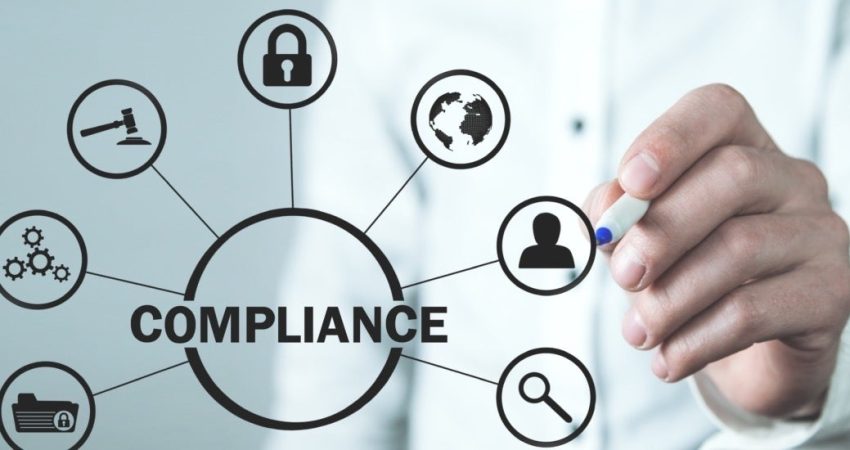
In today’s complex business landscape, effective corporate governance is more critical than ever. With increasing regulatory scrutiny, companies face heightened expectations for transparency, accountability, and ethical conduct. Compliance monitoring has emerged as a vital tool for organizations striving to enhance their corporate governance frameworks. This article explores the relationship between compliance monitoring and corporate governance, detailing how it contributes to organizational integrity, risk management, and overall operational efficiency.
Understanding Compliance Monitoring
Compliance monitoring refers to the systematic process of ensuring that an organization adheres to relevant laws, regulations, and internal policies. This process involves ongoing assessments, audits, and evaluations to identify compliance risks, monitor adherence to policies, and implement corrective actions when needed. Effective compliance monitoring helps organizations mitigate risks associated with legal and regulatory violations, thereby supporting robust governance practices.
The Importance of Compliance Monitoring
- Risk Mitigation: Compliance monitoring helps organizations identify and manage risks associated with non-compliance. By proactively addressing potential issues, companies can avoid costly fines, legal disputes, and reputational damage.
- Enhanced Transparency: Regular compliance assessments promote transparency within the organization. Stakeholders, including investors, employees, and customers, are more likely to trust companies that demonstrate a commitment to ethical practices and regulatory adherence.
- Better Decision-Making: By providing accurate and timely data regarding compliance status, monitoring systems empower management to make informed decisions. This data-driven approach enhances strategic planning and risk management.
- Strengthened Accountability: Compliance monitoring establishes clear responsibilities and expectations within the organization. Employees are more likely to act ethically when they understand the consequences of non-compliance and the importance of adhering to established policies.
The Role of Compliance Monitoring in Corporate Governance
1. Promoting Ethical Culture
A strong ethical culture is foundational to effective corporate governance. Compliance monitoring plays a crucial role in fostering this culture by ensuring that ethical standards are integrated into everyday business practices. Organizations that prioritize compliance are more likely to instill a sense of responsibility among employees, encouraging them to act in alignment with company values.
2. Supporting Board Oversight
Effective corporate governance requires active oversight by the board of directors. Compliance monitoring provides the necessary data and insights to support this oversight function. Regular compliance reports enable the board to assess the organization’s adherence to regulations and internal policies, facilitating informed discussions and decision-making.
3. Enhancing Internal Controls
Internal controls are essential for mitigating risks and ensuring compliance. Compliance monitoring helps organizations evaluate the effectiveness of their internal control systems and identify areas for improvement. By continuously assessing controls, companies can enhance their governance frameworks and reduce the likelihood of compliance breaches.
4. Facilitating Regulatory Compliance
As regulatory environments become increasingly complex, organizations must stay abreast of changing laws and regulations. Compliance monitoring systems provide real-time updates on regulatory changes, ensuring that companies remain compliant with evolving requirements. This proactive approach not only mitigates risks but also enhances the company’s reputation among stakeholders.
5. Enabling Continuous Improvement
Compliance monitoring fosters a culture of continuous improvement within organizations. By regularly assessing compliance processes and identifying areas for enhancement, companies can refine their governance practices over time. This commitment to improvement strengthens the overall governance framework and helps organizations adapt to changing business environments.
Implementing Effective Compliance Monitoring
1. Establish Clear Policies and Procedures
For compliance monitoring to be effective, organizations must have clear policies and procedures in place. These policies should outline expectations regarding compliance, ethical behavior, and reporting mechanisms. Clear guidelines empower employees to understand their responsibilities and the importance of adherence.
2. Invest in Technology Solutions
Technology plays a vital role in modern compliance monitoring. Organizations should invest in compliance management software that automates tracking, reporting, and auditing processes. These tools can streamline compliance efforts, reduce manual errors, and enhance data accuracy.
3. Conduct Regular Audits and Assessments
Regular compliance audits and assessments are essential for identifying potential risks and evaluating adherence to policies. Organizations should implement a schedule for periodic reviews to ensure that compliance monitoring remains effective and relevant.
4. Provide Employee Training and Awareness
Training is critical for fostering a culture of compliance within the organization. Employees should receive regular training on compliance policies, ethical standards, and reporting mechanisms. This education empowers staff to recognize compliance issues and take appropriate action when necessary.
5. Foster Open Communication
Encouraging open communication channels is essential for effective compliance monitoring. Employees should feel comfortable reporting potential violations or concerns without fear of retaliation. Establishing anonymous reporting mechanisms can further enhance this culture of transparency.
Challenges in Compliance Monitoring
While compliance monitoring offers numerous benefits, organizations may face challenges in its implementation:
- Resource Constraints: Implementing effective compliance monitoring can require significant resources, including time, personnel, and technology. Organizations must allocate sufficient resources to ensure success.
- Complex Regulatory Environments: The complexity of regulatory requirements can make compliance monitoring challenging. Companies must stay informed about changes in laws and regulations to ensure ongoing adherence.
- Cultural Resistance: Change resistance among employees can hinder the effectiveness of compliance monitoring initiatives. Organizations must engage employees and emphasize the importance of a compliance-focused culture.
Conclusion
Compliance monitoring is a cornerstone of effective corporate governance. By systematically assessing adherence to laws, regulations, and internal policies, organizations can enhance transparency, mitigate risks, and foster an ethical culture. As regulatory environments continue to evolve, the importance of robust compliance monitoring will only grow. Organizations that prioritize compliance as part of their governance framework will be better positioned to thrive in today’s dynamic business landscape.














